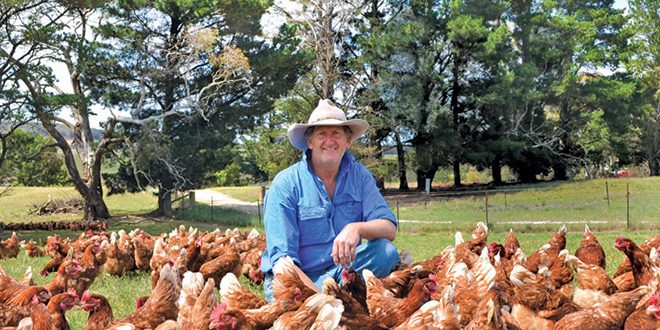HaveE you ever found yourself standing in the egg aisle at the supermarket wondering which would be best for animal welfare? If you prefer eggs to have come from a farm where hens have space to move around freely to scratch, perch, dust bathe and peck – then RSPCA Approved certification is a must have. The good news for ACT and NSW shoppers, Farmer Rod’s Free Range Eggs are RSPCA Approved and are available in more stores near you. Farmer Rod’s eggs are worth including as part of your weekly shop, being certified by the RSPCA for good animal welfare because gaining RSPCA Approved certification is not easy.
The process takes time and is meticulous and rigorous. RSPCA Approved certification means animals are raised to detailed animal welfare standards, with the farm undergoing regular visits by trained RSPCA assessors to check standards are met. It took the Pope family over 12 months to join the scheme, and involved a huge effort and complete transformation of their Farmer Rod’s Free Range Eggs farm. Though now their farm is independently certified against a detailed set of standards that are backed by animal welfare science. Rodney Pope said, “We are extremely proud of how the farm looks and operates today.”
“Being RSPCA Approved gives our customers the confidence they are buying free-range eggs with the highest welfare standards certified by one of the most reputable and recognisable organisations in Australia.” RSPCA Approved farms have lower stocking densities than those required by law, both inside and outside the barn. This means more space for egg-laying hens to socialise, stretch, run and flap their wings. It is also easier for them to move away from and avoid aggressive birds.
On Farmer Rod’s farm there are a maximum of 1500 hens per hectare – more space per bird for foraging and scratching. Each morning, large barn doors open and the hens wander to forage, scratch, peck and flick dust into their feathers to keep clean and free from bugs. With trees and shrubs offering shade and protection from the weather and predators, the hens can wander all day. To encourage the hens to explore further areas of the farm while feeling safe, the Popes planted 300 Pin Oak trees recently.
Providing additional shade and protection, the oak trees will encourage seeds and bugs, which hens love.
The hens instinctively return to the barn in the evening, and the doors are closed overnight to keep them safe. The quality of indoor environment is crucial for good welfare, even on a free range farm. Farmer Rod’s hens have secluded nests to lay their eggs, perches for roosting, water and nutritious food in the barn. Rodney and Jane Pope have been producing free-range eggs for 30 years. The Popes diversified into egg farming to help get their young family through a severe drought in the early 1990s, and now have 17,000 on their regional NSW farm.

